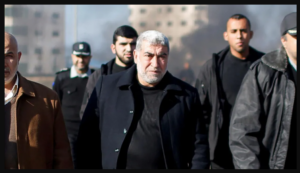
The airstrike on Gaza was unprecedented in scale. Reports confirm over 220 lives were lost this morning. Among them is a significant figure, Mahmoud Abu Wafah. He was the Deputy Interior Minister and a high official in Hamas.
What drives such intense military action? The Israeli government claims it targets what they describe as terrorist infrastructure. Yet, in a tightly populated area like Gaza, this raises complex ethical concerns. Bombing homes and hospitals may lead to more grief.
Witnesses described a haunting scene. Early in the morning, during the sacred hours of Ramadan, families were gathering for suhoor, their pre-dawn meal. The sudden roar of warplanes shattered what should have been a peaceful moment. It’s hard to imagine the terror families felt.
The ceasefire that held for a while has now been shattered. Since January, there was a measure of peace. But negotiations failed once again. Israel’s Prime Minister, Benjamin Netanyahu, insists they acted out of necessity. He stated Hamas has ignored all efforts to resolve the hostage situation. But can military action ever solve the deep-rooted issues?
Israel’s Ambassador to the UN issued a stark warning. Hostages’ lives hang in the balance as Israel responds to perceived threats. The implication is clear: the violence will persist until the group complies. But what does that mean for the civilians caught in the middle?
Hamas reacted with fury, accusing Israel of breaching the ceasefire. They argue that the latest strikes endanger the remaining hostages. How do people survive in such an atmosphere of threats? Calls for mediation are louder than ever, yet results feel distant.
Increasingly, international voices are questioning this cycle of violence. The role of other nations, particularly the U.S., has come under scrutiny. They were informed before Israel launched these strikes. Was it wise to proceed without a broader consensus?
The background of this conflict runs deep. October 7 marked a turning point. Hamas’s surprise attacks left over 1,200 Israelis dead, initiating a fierce military response from Israel. The toll has been staggering since then; reports indicate over 48,520 Palestinians have died.
Could it be possible for peace to emerge from these ashes? Many people fail to recognize the toll on civilians. The majority of Gaza’s 2.1 million residents face dislocation. Homes lay in ruins, where families once lived.
What about healthcare in a crisis like this? It’s been reported that essential services are crumbling. With shortages of food, water, and medicine, residents are fighting for survival. In a world where basic needs are unmet, hope struggles to survive too.
As we witness these events, it’s crucial to reflect. The stories of those affected often go unheard. How do we, as global citizens, ensure their voices are amplified? It’s so easy to overlook the human aspect in discussions of policy and military strategy.
It’s painful to think about, yet necessary. This cycle doesn’t just affect governments; it shatters lives. Can it ever really end if understanding and compassion aren’t part of the equation? Only time will tell, but we must act now to advocate for peace.
Leave a Comment